
Rozina Vavetsi, M.Sc., Selected as a Fulbright U.S. Scholar
Associate Professor of Digital Art and Design Rozina Vavetsi, M.Sc., has been awarded a Fulbright U.S. Scholar fellowship. Beginning in January 2025, she will spend six months in South Africa, where she will work closely with the faculty at the University of Johannesburg and embark on a series of activities focused on teaching and researching human-centered, participatory design and decolonization of the Graphic (Communication) Design department’s curriculum, with particular emphasis on disadvantaged communities. She spoke with New York Tech News about her upcoming fellowship.
Can you talk about your project?
My Fulbright fellowship will focus on “Participatory Design and Curriculum Decolonization in Marginalized Communities in South Africa.” It consists of three parts:
1. Teaching
- Participatory Design Course: I will co-teach the University of Johannesburg’s Participatory Design course, an innovative course that explores the dynamic intersection of graphic design and community engagement. Through interviews, brainstorming sessions, and joint creative exercises, students will engage in effective communication and experimentation with end users and community stakeholders on interdisciplinary projects. They will work on meaningful design projects for local communities (branding, packaging, web design, publications, advertising, etc.). From their exposure to different perspectives and experiences, the goal will be to create meaningful, humanistic designs that align with the users’ needs and stakeholders’ expectations and preferences.
- Editorial/Zine Design Course: I will co-teach the University of Johannesburg’s Editorial/Zine Design course, where students will work collaboratively to design a new “Cultural Heritage Cookbook.” Incorporating their personal and signature style, students will identify a traditional dish from either their own or a different cultural heritage and design magazine spreads that include the history of the dish, ingredients, cooking instructions, and interviews with local chefs, food artisans, street vendors, or family members. Finally, all the recipes will be assembled into a collaborative publication.
2. Decolonization of the Curriculum
At the invitation of the University of Johannesburg’s faculty involved with curriculum development, I will participate in review meetings and discussions focusing on the revision and decolonization of the curriculum. Together, we will investigate areas for improvement, emphasizing the inclusion of underrepresented ethnic groups and community stakeholders in Johannesburg and South Africa.
3. Design Research: Discover, document, and promote community design
Capitalizing on my time in South Africa, I will venture out to discover and document the design vernacular of the country. I will study representative color schemes, typography, patterns, textiles, objects, and imagery with an emphasis on ethnic and cultural influences to create a “visual anthology” as a hybrid compendium of narratives and imagery.
How does it relate to your current work?
I teach and practice graphic design, which is an immensely powerful force. A force that inspired me to leave my homeland, Greece, and study communications design at Pratt Institute in New York City, the mecca of visual dynamism, diversity, and multiculturalism in all its forms.
As a professor at New York Tech for the past 22 years, I teach students not just the traditional notions of graphic design but also its power to have a cultural impact, influence societal values, and communicate thought-provoking messages.
The University of Johannesburg and New York Institute of Technology are aligned in many fundamental ways. Both institutions inclusively serve a highly diverse student population and admit a significant percentage of financially disadvantaged students. Our respective cities, Johannesburg and New York, are dynamic, multicultural melting pots with large, marginalized communities challenged by immigration, racial/ethnic segregation, and economic inequality. Moreover, at both institutions, students engage in experiential education and service-learning opportunities, collaborating closely with community partners to develop design solutions that meet their specific needs.
Why did you choose to work in South Africa?
I remember being astonished the first time I saw photographs of the Orlando Towers in Johannesburg. These abandoned industrial cooling towers in Soweto, South Africa, have had their cold concrete surfaces decorated with stunning ethnic colors and designs since 1998. The beauty of these towers led me to read about Soweto and to learn of this township’s troubled past, including the horrible riots during South Africa’s era of Apartheid and the enduring stigma of colonialism and racial discrimination. I was fascinated to find out how the graphics on those towers emerged post-Apartheid, to rekindle pride in a diverse culture and broadcast a proud determination and unity against division.
I am captivated by South African history and its visually vibrant and rich artifacts, and I would like to explore how human-centered design could impact social transformation. I was excited to discover that the faculty at the University of Johannesburg share the same passion for participatory design and community engagement.
Why did you want to apply for a Fulbright Scholarship?
Fulbright Scholarships promote academic and professional growth, encourage cross-cultural collaboration on a global scale, and offer exceptional opportunities for research, teaching, and outreach.
This Fulbright Scholarship will help me enrich my career and enhance the reputation of New York Tech. I hope that my project will help foster a lasting partnership between academic and design communities in South Africa and the United States for cross-pollination of design thinking and pedagogical methodologies. My mission is to advance the area of human-centered, participatory design, service-learning, and community engagement at both our institutions and to help create sensitivity to the people of marginalized communities.
This interview has been edited and condensed.
More News
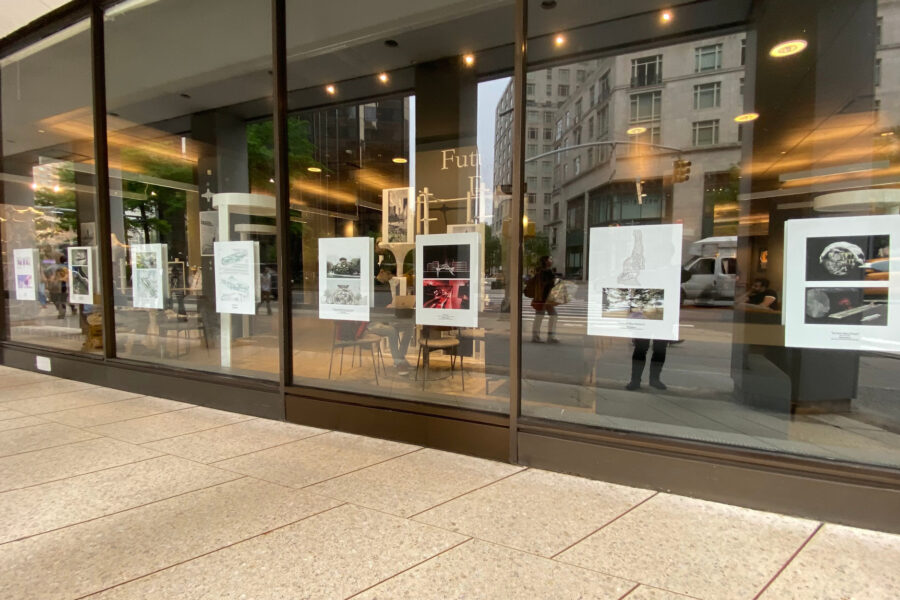
School of Architecture and Design Student and Faculty Work Displayed at NYCxDESIGN
The School of Architecture and Design returned to the NYCxDESIGN Festival with its Future by Design series.
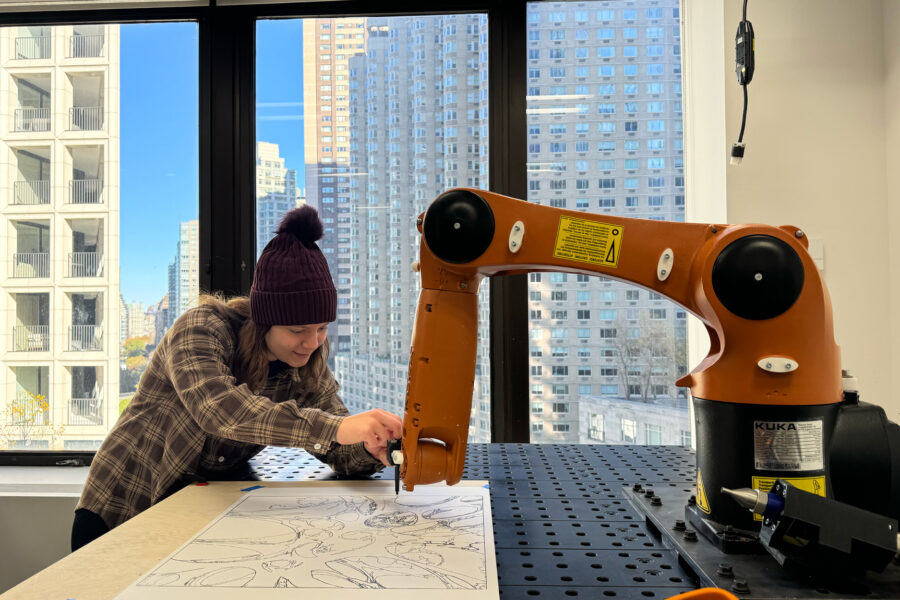
$1 Million Grant Supports the Institute for Design Research and Innovation at the School of Architecture and Design
The three-year IDC Foundation grant supports the establishment of the IDC Institute for Design Research and Innovation, creating an integrated ecosystem of the school’s facilities, labs, and centers on the Long Island and New York City campuses.
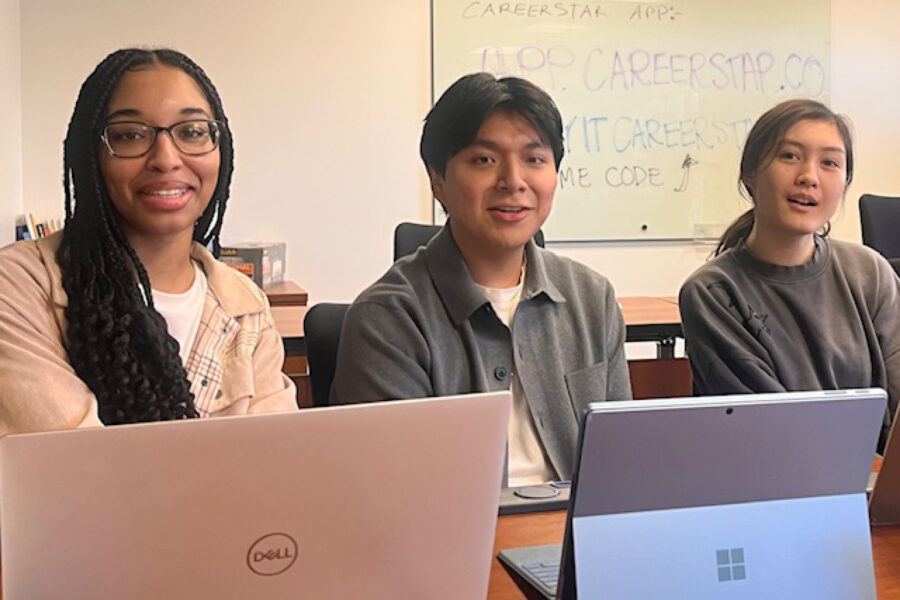
Students Propose Solutions to Commuting Challenges
On the heels of last fall’s efforts to solve commuting challenges, students in spring’s Data 101 course are turning ideas into action.
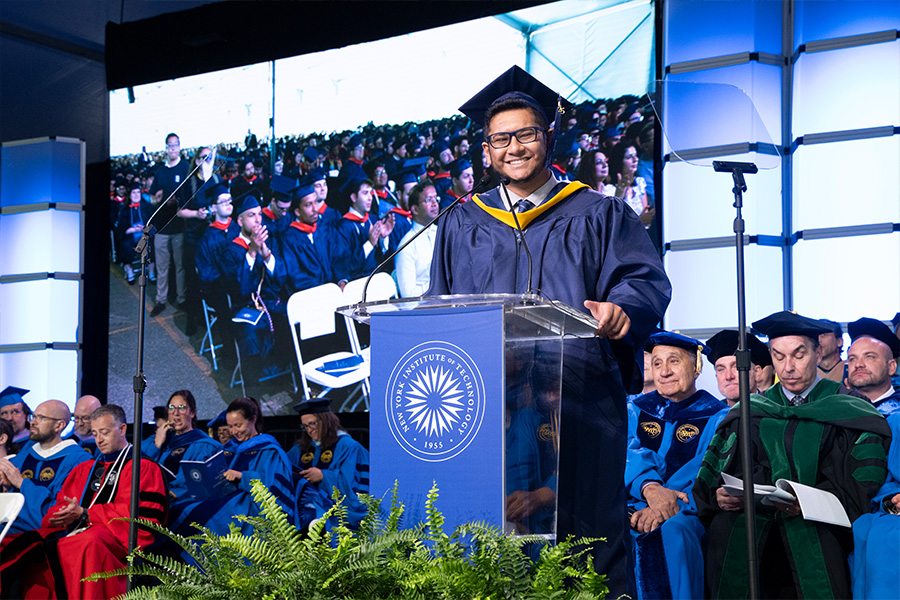
Cheers to the Class of 2025!
On May 18, graduates, family members, and friends joined faculty, staff, and administration at New York Institute of Technology’s Long Island campus to celebrate its 64th annual commencement.
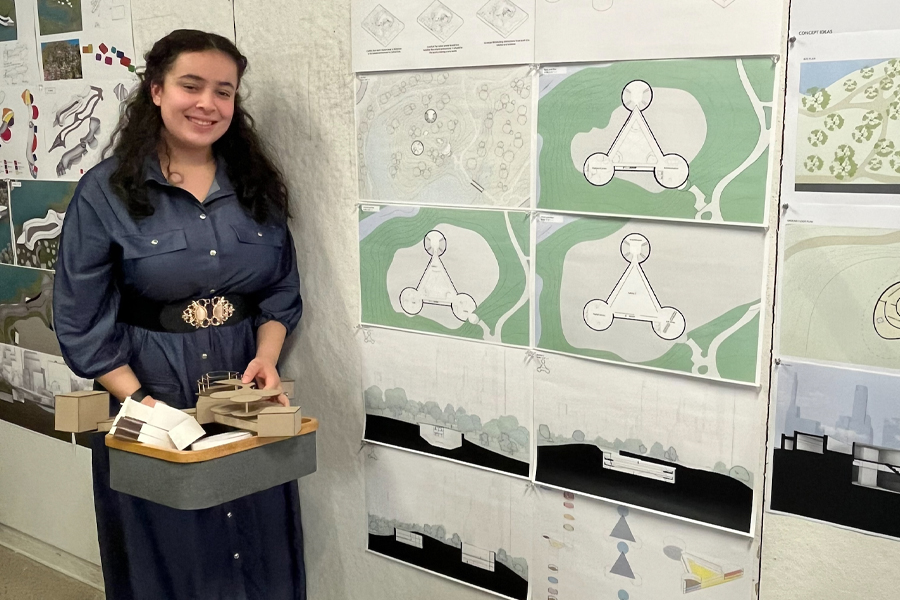
Empowered to Design
Architecture student Yulissa Luciano received the AIA Bronx Student Empowerment Award, commending her dedication and talent in the field.
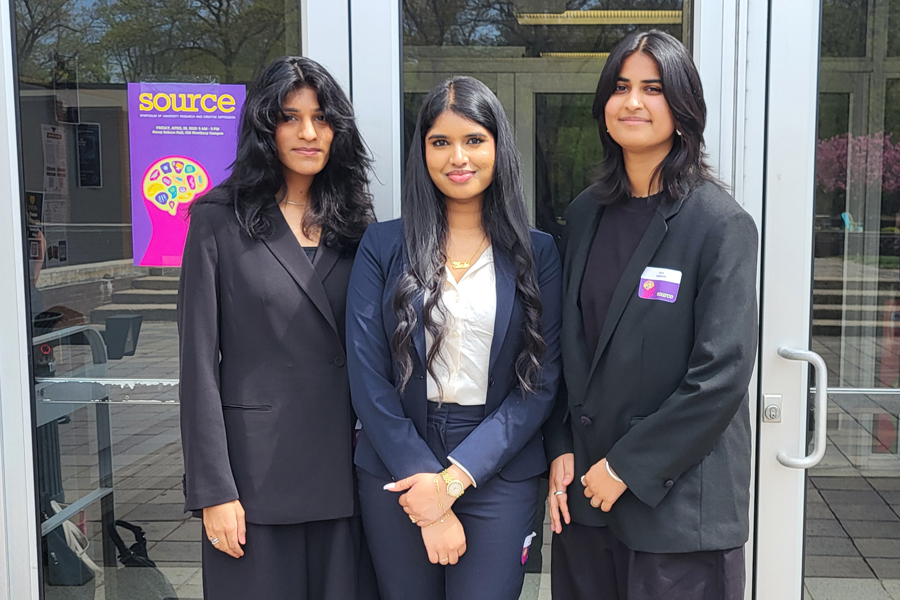
A SOURCE for Student Research
Hundreds of students gathered to present their academic research at New York Tech’s 22nd Annual Symposium of University Research and Creative Expression (SOURCE).